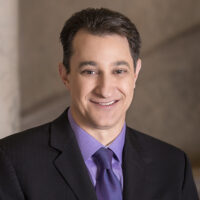One of the first lessons we learn as small children is: Honesty is the best policy Yet, in 2019, my unvarnished assessment of public schools — that government shouldn’t be in the education business — wound up being the quote that lit the media’s collective hair on fire. I also said that public schools are exceptionally good at indoctrination and teaching socialism. Several Idaho media pundits used it to ridicule me and record their personal outrage. How dare anyone question the existence of government-run schools, especially Wayne Hoffman, to whom people might listen?

Even some of my friends questioned the wisdom of making such a provocative statement. “Maybe you should walk that one back,” a lawyer friend emailed me.
In 2019, apparently, the proper response to criticism is to redact, edit, take down the post, delete the tweet, and issue an apology using the social and legacy media platforms to retcon objectionable thoughts. There are 7.5 billion people on the planet, but wouldn’t you know, we are all supposed to think, write, speak, and tweet the same. Apparently, there’s a new Golden Rule: Never offend anyone by challenging expertly-established ideas.
Turns out, I’m not so good with conformity. Moreover, the encouragement I have received that my assessment is correct has helped soften the punches so much that I hardly feel ‘em. I have no regrets. My 2020 New Year’s resolution is to #trigger more people to seek #safespaces more often, starting with what most ails public education: The government-controlled system and the cronies who feed off of it (so-called “stakeholder groups”) are the biggest impediment to student achievement. It’s also a barrier to teachers being free to teach and being well-paid for their great work.
People of all political persuasions have come to accept that government sucks at many things, and some of us believe that government sucks at, well, everything. Though the former may limit their government infuriation to the DMV, the postal service, and the bus system, the latter subscribe to economist Milton Friedman’s assessment of the situation: “If you put the government in charge of the Sahara Desert, it would be out of sand in five years.” (Never heard of Friedman? I am not surprised. But I bet your public school taught you all about Marx.)
The bureaucratic, government-run American public education system, struggle as it might to produce well-educated, competitive-on-the world-stage schoolchildren after 13 years of trying, often escapes the critical review it deserves. Someone somewhere ordained that one mustn’t talk about whether the government is capable of meeting the needs of the typical 21st-century student. Such a thought prohibition hasn’t served anyone well. It has removed from serious discussion a real analysis of government-run education’s shortcomings.
To the degree that the state constitution requires Idaho to have a public-school system, liberty-oriented public policy minds have to make the best of a bad situation to help today’s students, parents, teachers, and taxpayers.
That hardly means we are stuck. Today, more people seem willing to consider that the government should not own liquor stores, sell insurance, operate newsrooms, commission art, own land, license jobs, or control the economy. That realization has come as part of a willingness to consider today’s facts and deploy alternatives to past precepts.
So, why not devote 2020 to the resolution that honesty remains the best policy? And, honestly, people need to feel free to openly question whether the government-run education monopoly is the best we can do.
